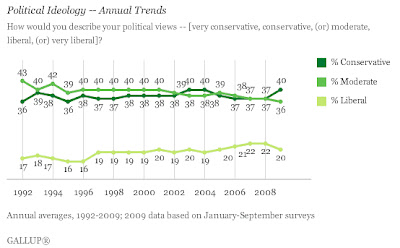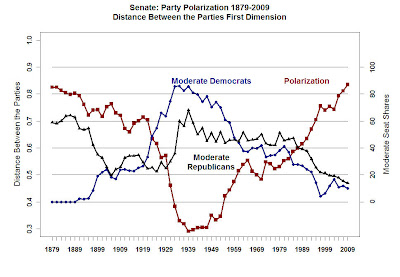I have been exploring the relationship between the structure of governments and the way that it affects the beliefs and values of its citizens. In order to explore such a broad topic, I have limited the scope of my discussion to ancient Greek democracy, particularly fifth century Athens and the relatively modern US "democracy". In the interest of exploring the roots of our democratic principles and due to the founding fathers' interest in classical civilizations, I will consider their views and writings in addition to contemporary US views. I hope that this will demonstrate some of the persistent strengths and weaknesses of societies ruled by the people, recognizing these similarities between ourselves and the ancients can provide guidance in our own growth as citizens and as a culture.
Secondary Sources:
First Democracy - Paul Woodruff
Greeks and Romans Bearing Gifts: How the Ancients Inspired the Founding Fathers - Carl J. Richard
Free Speech and Democracy in Ancient Athens - Arlene W. Saxonhouse
The review of the three secondary sources has exposed me to three completely different perspectives. First Democracy focuses on the question of what democracy actually is, stating "We are too close to our own experience of democracy...to see clearly what are the essential features." Accordingly, Woodruff spends most of the remainder of the book exploring what he considers the seven fundamental concepts that define democracy: (Note that they are NOT voting, majority rule, or electing representatives)
2) Harmony
3) The rule of law
4) Natural equality
5) Citizen wisdom
6) Reasoning without knowledge
7) General education
Woodruff also has a chapter at the end of the book where he asserts that the US is not yet ready for a true democracy, and is in fact moving away from one. One of the main reasons for this is the two party system that limits the rights of the citizen to choose candidates and results in a winner-takes-all style of government that is not conducive to the values of true democracy.
I think Woodruff has an excellent point that the Greek system, based on oral tradition, was much more flexible and direct than our own, and as such allowed for a more accurate portrayal of the will of the people. Our system, with its rigidly reverent attitude towards the Constitution, does not allow for drastic changes in form. While the Founders saw this as a safety feature, I believe that it has helped lead to voter apathy, as those living in "locked" districts know their vote does not matter. You can understand the frustration for many voters by looking at the two charts below. Over time the parties have become increasingly polarized (this is a huge problem in the harmony category) and the large number of moderate voters are left without candidates to vote for. I believe this contributes to much of the apathy felt by today's voters, especially the younger generations wihtout a lifetime of voting experience, because they feel that their voice is not being heard. They feel forced to choose between the lesser of two evils put forth by the parties and so they have no desire to vote. Perhaps by studying ancient (or other modern) forms of democracy we could get ideas to remedy this problem, but that would require us to address education (#7) and to free ourselves from the tyranny of a two party system (#1)


Richard also asserts that the Founders did not intend for the country to be a democracy, much as we may refer to it as that now. He explains that the founders, with their thorough knowledge of the classics, saw the accounts of Thucydides and Plutarch as warnings about purely democratic forms of government. The Founders were interested in a sort of mixed government from the beginning, where the common people held some of the power and a more educated/aristocratic class held some. This was intended to balance the foolishness of the mob and the often greedy interests of the wealthy. One can see Richard's assertions in the language and form of the Constitution which makes distinctions between the House of Representatives and the Senate. The House (which is elected by the people) has the exclusive right to initiate Bills to raise revenue. The Senate, though now elected directly by the people, was the more aristocratic/elite group and was chosen by the legislature of the state (Article 1, Section 3)
These points about the Founders are interesting because many Americans consider the US to be a excellent example of democracy, when in fact it isn't really a democracy and was never intended as one. In fact, many Americans refer to the Founding Fathers or cling to the Constitution as the primary sources of democracy, which is ironic because the Founders, with their more extensive classical education, knew that they were no such thing.
Saxonhouse writes specifically about free speech. The first chapter of her book explores the difference between our view of free speech, aimed at protecting citizens from opression by the government, and the Greeks who viewed it more as a great equalizer. The Greeks were not concerned about repression from the government in the way that we are because they ARE the government, while we elect officials and need to control them from applying laws that might repress certain groups. For more on this topic see my previous post.
On the topic of direct democracy, below you can see a kleroterion, which was a device used in Athenian democracy to randomly select members for several of the political groups. Each citizen placed his token in a slot and a system of dice indicated which tokens would be chosen. This lottery system is an interesting feature of Greek democracy which made it considerably more direct than our own. Among other things, it eliminated the advantages of being wealthy that are present in our elction based system.
Primary Source #1: Aristotle
As I mentioned in a previous post, Aristotle devotes several chapters of politics to the idea of civic virtue. From his writings we can see a definition of a citizen that is more stringent than our own and is tied much more closely to the state than our own, as he explains that a citizen's "special characteristic is that he shares in the administration of justice, and in offices" or more broadly, that a citizen is "He who has the power to take part in the deliberative or judicial administration of any state is said by us to be a citizen of that state".
Continuing Aristotle addresses whether those who hold no share in office can be true citizens. He concludes that they are not as "he is a citizen in the highest sense who shares in the honours of the state" and "he who is excluded from the honours of the state is no better than an alien". This shows a consistent and firm belief that the rights and responsibilities of citizens were firmly linked to their participation in public life, and that it was not sufficient to be born a citizen if you did not fulfill these public duties. This is not a belief that we currently hold, as large numbers of Americans that are eligible to vote show little interest in doing so and are not reviled by the rest of society for that choice.
Primary Source #2: Thucydides
While Aristotle's writing highlights a difference between ancient Greek beliefs and our own, Pericles' funeral oration in Thucydides' "History of the Peloponnesian War" sounds very smilar to the values America professes to have. These are called out in detail in my previous post: "The Modern Link: Excerpts on Democratic Government" so I will not explore them further here.
These two primary source examples show both similarities (Thucydides) and differences (Aristotle) between our views and those of the ancient Greeks. As I mentioned previously, exploring both the simlarities and differences allows us to identify with and learn from the Greeks, both in their successes and their failures.

No comments:
Post a Comment